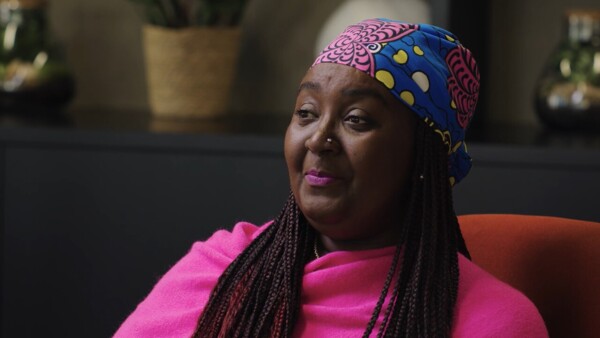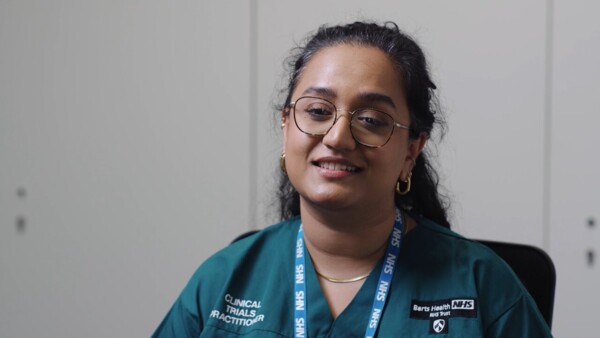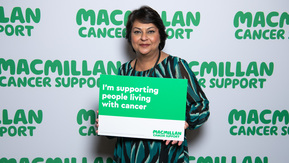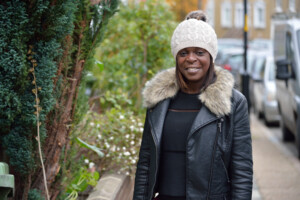Thank you to Sukhy and her family
Diagnosis and treatment
"In 2019, I was diagnosed with primary breast cancer. I had a mastectomy with an implant, chemotherapy, radiotherapy and then I was on hormone therapy. I got the ‘all clear’ in March 2022. Unfortunately in August 2022 I was diagnosed with secondary breast cancer, the breast cancer had moved to my liver and my bones.The first diagnosis was a massive shock because I'd never seen anybody that looked like me that had breast cancer. Nobody in the community speaks about it so it was really lonely. I did make some really great connections but I think culturally it's quite hard to try and connect with people as well."
Sukhy's clinical trial journey
In this video Sukhy shares her experience of clinical trials and the importance of talking about cancer.
You can also access this video with translated subtitles:
If you can have something that can extend your life, why would you not try it?
Taking part in clinical trials
"With my secondary diagnosis it was a lot more difficult because I know there were limited treatments and the prognosis for a secondary diagnosis is not very good.
My nurse told me there might be trials available to me. I failed to get on the first two trials because I didn’t qualify but luckily I managed to get on a trial.
I think specifically as a secondary breast cancer patient we don't really have anything to lose. There are limited amounts of drugs that we can try before we run out of options.
It’s the same with any drug that you're taking, you don't know how it's going to affect your body. But if you can have something that can extend your life why would you not try it?
I just think it is important for people to have the opportunities to take part in trials and not be frightened, because it can prolong your life."
Sukhy talked about the benefits of clinical trials
- I'm all about the science and trying new things. With clinical trials I think you're a lot more looked after. There are constant scans and tests and they make sure you're okay all the time. I have a constant contact that I can speak to whenever I need to.
- I know that from my own experience that my chemotherapies that I've been on up until this point have been quite difficult. The last one that I was on was awful and it didn't work very well at all. With this trial drug I actually feel like a normal human being so I'm really grateful that I was allowed to take part.
- I never felt that I couldn’t ask questions, everyone is quite open to any questions that I might have.
- If you are able to be involved in clinical trials I think it's really important to get involved because not only can it benefit you, it can benefit a lot of people that will be diagnosed after you.
There are also barriers
- I'll be honest, the paperwork that they give you is not so easy to understand. I think there's quite a lot of science speak in there. But my team is amazing. Anything that I didn't understand or any questions that I had in regards to side effects or how the treatment works, they will quite willingly explain it to me and tell me how everything works.
Get support from the Macmillan Support Line
The Macmillan Support Line is a free and confidential service for people living with cancer and their friends and family, available 7 days a week, 8am to 8pm.
If you have questions about your cancer treatment, or just want to talk, you can speak with our cancer information nurse specialists.
Call us for free on 0808 808 0000, chat online with a specialist, or contact the team by email.







